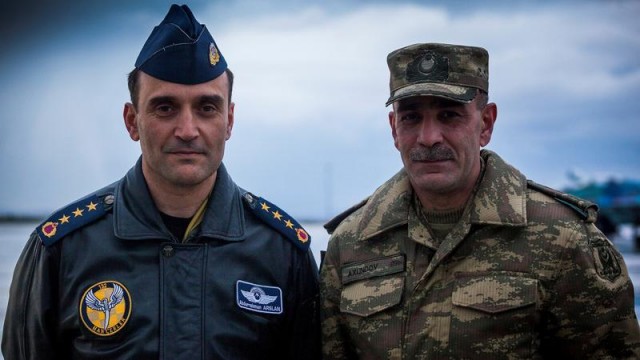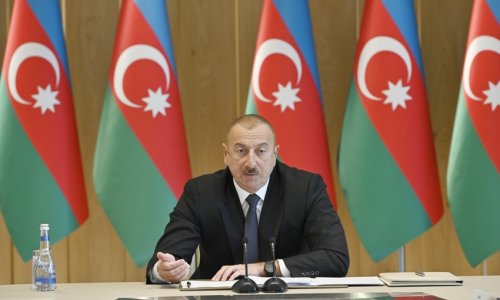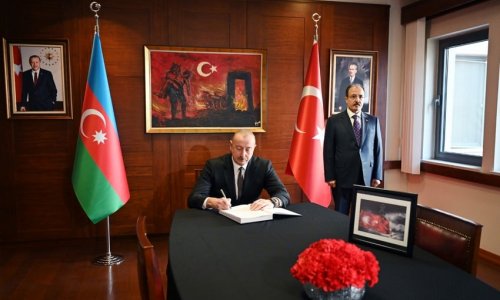Political ties and coordination are growing between Turkey and Azerbaijan, but terrorism is disrupting what should be a smooth relationship. This week officials from both countries met to discuss cooperation in emergency management and military coordination. Ever since the two nations signed an agreement on military education in 1992, their bilateral security cooperation has been strong.
Both countries’ air forces participate in annual joint exercises, and the TurAz Falcon 2015 exercises are currently ongoing. (They began on August 22 and will run through September 18.) The air forces are practicing joint planning and coordination, search-and-rescue operations, and eliminating ground targets with airstrikes.
Meeting this week, Azerbaijani Defense Minister Zakir Hasanov and Turkish Ambassador Ismail Alper Coskun emphasized the importance of settling the Armenian-Azerbaijani conflict over Nagorno-Karabakh, which borders Turkey. (That conflict has been simmering on and off since the end of the Cold War, and in recent months daily reports of mortar fire and gunfire there have become the new norm.) Turkey clearly supports Azerbaijan over their shared enemy Armenia.
Azerbaijan also approved Turkish low-cost carrier Pegasus Airlines to begin flights from Turkey’s Istanbul to Azerbaijan’s Gabala and back. An agreement between the two countries’ civil aviation authorities was signed last November, paving the way for the still to-be-determined starting date of these Pegasus flights. Meanwhile, Azerbaijan Airlines continues to cooperate closely with Turkish Airlines, which connects the Azerbaijani cities of Baku, Ganja, and Nakhchivan to several cities in Turkey.
However, the number of Azeri tourists visiting Turkey is down 20% from last year, mostly due to fears of additional terrorist attacks within the country. Ankara also blames the Kurdish PKK terrorist group for sabotaging the important South Caucasus pipeline that ships Azeri natural gas to Turkey. The latest occurrence was on August 24, causing a temporary closure. (Turkish company BOTAS has promised to restore the damaged section by August 28-29.) And the PKK did indeed claim responsibility for a previous attack on the pipeline in early August.
Besides its own import needs, Turkey has ambitions to become a regional hub for oil and gas transiting from Asia and the Middle East to Europe — and earn hefty transit fees by doing so. So any disruptions are costly, both in terms of lost product as well as tarnished reliability. But the shared geo-strategic and economic interests of Azerbaijan and Turkey far outweigh the nuisance of terrorism, so their relationship will remain solid.
(http://blogs.blouinnews.com)
www.ann.az
Follow us !











